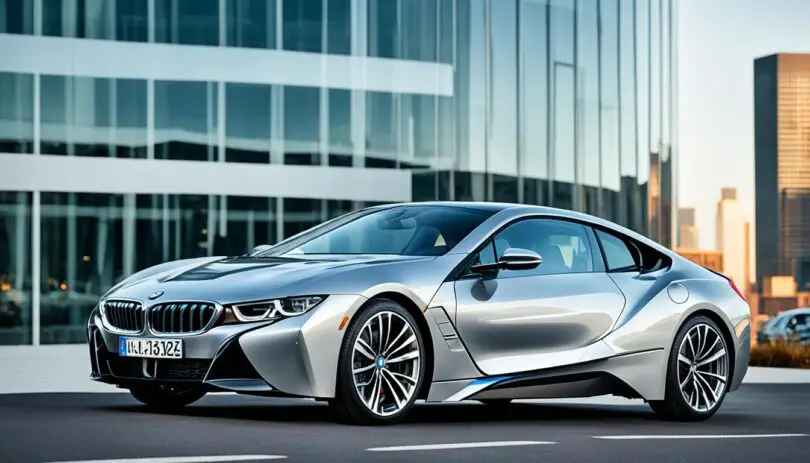When it comes to luxury cars, BMW is a brand that often comes to mind. With its reputation for performance, style, and innovation, it’s no wonder that many car enthusiasts aspire to own a BMW. However, like any major purchase, there are pros and cons to consider before making a decision.
In this comprehensive guide, I will explore the various aspects of buying a BMW, providing an overview of the different series and model naming conventions. I will also delve into the pros and cons of specific BMW models, such as the 1 Series, 2 Series, 3 Series, 4 Series, 5 Series, and 7 Series, to help you make an informed choice.
Key Takeaways:
- BMW is a renowned luxury car brand known for its performance and style.
- Consider the specific pros and cons of different BMW models before making a purchase.
- Formulate your decision based on factors such as budget, desired features, and personal preferences.
- Do thorough research and take the car for a test drive to ensure it meets your expectations.
- Consider long-term costs, including maintenance and insurance, when evaluating the overall value of owning a BMW.
Overview of BMW Series and Model Naming Convention
Welcome to the second section of our comprehensive guide to buying a BMW. In this section, we will provide an overview of the BMW series and model naming convention, giving you a better understanding of the different models available.
BMW offers a wide range of vehicles, each belonging to a specific series. These series help categorize the models based on their size, performance, and target market. Let’s take a closer look at the main series:
- BMW 1 Series: The 1 Series consists of compact luxury cars designed for urban driving. They offer a perfect blend of agility, comfort, and advanced technology.
- BMW 2 Series: The 2 Series includes sporty coupes and convertibles, known for their dynamic performance and stylish design.
- BMW 3 Series: The 3 Series is BMW’s most popular series, offering a range of sedans, wagons, and even a plug-in hybrid variant. It embodies the perfect balance between luxury, sportiness, and practicality.
- BMW 4 Series: The 4 Series comprises elegant coupes, convertibles, and gran coupes that deliver exceptional performance and head-turning aesthetics.
- BMW 5 Series: The 5 Series represents the epitome of executive sedans, featuring luxurious interiors, cutting-edge technology, and powerful engines.
- BMW 7 Series: The 7 Series showcases BMW’s flagship luxury sedans, offering unparalleled comfort, opulence, and state-of-the-art features.
Now, let’s delve deeper into the pros and cons of each series to help you make an informed decision when choosing the right BMW model for you.
| BMW Series | Pros | Cons |
|---|---|---|
| 1 Series | – Compact and agile for urban driving – Advanced technology features |
– Limited interior space – Can be pricey for its segment |
| 2 Series | – Sporty and dynamic performance – Stylish design |
– Limited rear-seat space – Less cargo capacity |
| 3 Series | – Perfect balance of luxury and sportiness – Wide range of options |
– Competition in the segment – Older models may lack some modern features |
| 4 Series | – Sleek and elegant aesthetics – Strong engine lineup |
– Less rear headroom in coupes – Firm ride on sportier variants |
| 5 Series | – Luxurious and comfortable interiors – Advanced driver-assistance systems |
– Costlier to maintain than smaller BMWs – Some optional features can be expensive |
| 7 Series | – Unmatched luxury and refinement – Cutting-edge technology |
– Higher price point – Less engaging driving experience compared to smaller models |
Pros and Cons of BMW 1 Series
When considering the purchase of a BMW, it’s important to thoroughly evaluate the pros and cons of each model. In this section, we will delve into the specific advantages and disadvantages of the BMW 1 Series.
Pros of the BMW 1 Series:
- The BMW 1 Series offers a sleek and compact design, making it a perfect choice for urban environments where parking spaces can be limited.
- Its powerful engine options deliver impressive performance, giving drivers a thrilling and exhilarating driving experience.
- The interior of the BMW 1 Series is thoughtfully designed, with high-quality materials and comfortable seating, ensuring a luxurious and enjoyable ride.
- With its advanced technology features, such as a responsive touchscreen interface and a variety of driver assistance systems, the BMW 1 Series provides convenience and safety for the driver and passengers.
- Despite its compact size, the BMW 1 Series offers ample cargo space, allowing for practicality and versatility in daily usage.
Cons of the BMW 1 Series:
- One of the drawbacks of the BMW 1 Series is its relatively high starting price compared to other vehicles in its class.
- The rear seating area may feel cramped for taller passengers, limiting comfort during longer journeys.
- While the BMW 1 Series is known for its sporty performance, some may find the ride to be on the firmer side, which can result in a less smooth and cushioned driving experience.
- Compared to larger BMW models, the storage capacity in the BMW 1 Series may be insufficient for those requiring significant cargo space.
- Maintaining and repairing a BMW 1 Series can be costly, particularly when it comes to specialized parts and services.
Considering the above pros and cons, it’s essential to evaluate your specific needs and preferences before making a decision. While the BMW 1 Series excels in several areas such as performance and luxury, it’s essential to weigh the potential drawbacks and determine if they align with your individual requirements.
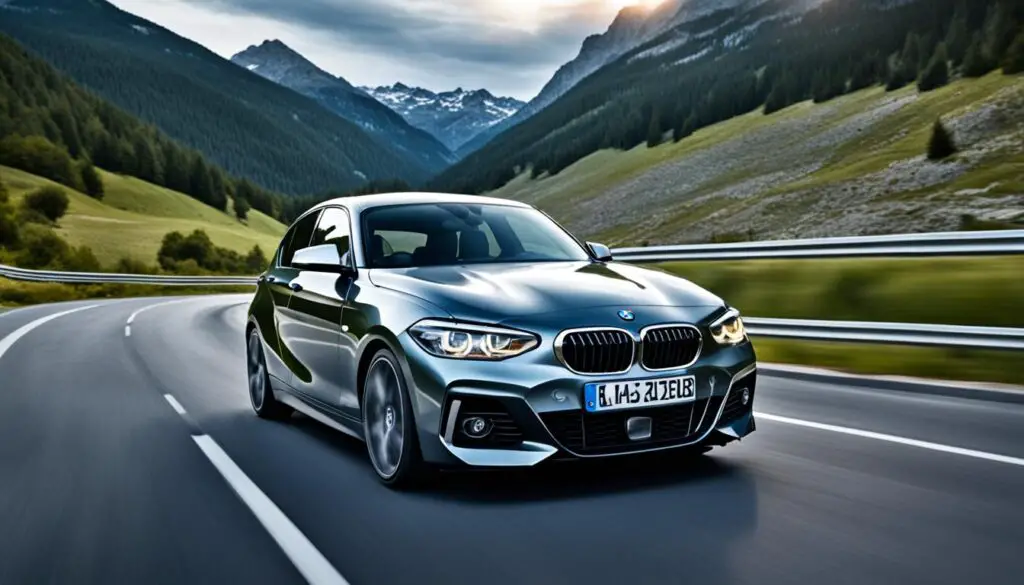
Pros and Cons of BMW 2 Series
As I delve into the pros and cons of the BMW 2 Series, I’m excited to share the highlights and drawbacks of this popular car model. Whether you’re considering it for its style, performance, or versatility, it’s essential to understand what sets the 2 Series apart.
Pros of BMW 2 Series
- 1. Stylish Design: The BMW 2 Series boasts a sleek and sporty exterior, capturing attention wherever it goes.
- 2. Engaging Driving Experience: With its powerful engine options and precise handling, the 2 Series delivers an exhilarating driving experience.
- 3. Compact Size: The compact size of the 2 Series makes it easy to maneuver in tight spaces, ideal for urban areas or crowded parking lots.
- 4. Advanced Technology: Equipped with cutting-edge features like an intuitive infotainment system and driver-assistance technologies, the 2 Series offers convenience and safety.
- 5. Fuel Efficiency: The 2 Series achieves impressive fuel efficiency, helping you save on petrol costs during your daily commutes or long road trips.
Cons of BMW 2 Series
- 1. Limited Rear Passenger Space: The compact size of the 2 Series results in less legroom and headroom for rear passengers, making it less comfortable for extended journeys.
- 2. Reduced Boot Capacity: Due to the smaller size, the boot space in the 2 Series may not be sufficient for larger items or extensive luggage.
- 3. Firmer Ride: Some drivers find the suspension of the 2 Series to be on the firmer side, which may result in a less plush ride compared to larger BMW models.
- 4. Higher Price Tag: The premium quality and performance of the 2 Series come at a higher price point compared to other compact car options in the market.
Overall, the BMW 2 Series impresses with its stylish design, engaging driving experience, and advanced technology features. However, it’s important to consider the limited rear passenger space, reduced boot capacity, firmer ride, and higher price tag before making your final decision.
Now that we’ve examined the pros and cons of the BMW 2 Series, let’s turn our attention to the BMW 3 Series in the next section.
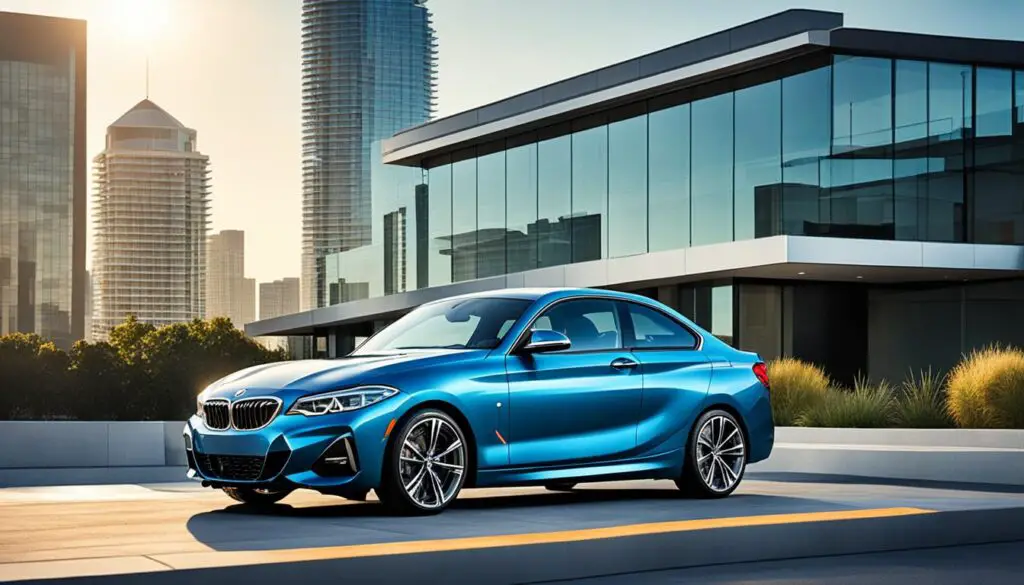
Pros and Cons of BMW 3 Series
As an automotive enthusiast, I have always admired the BMW 3 Series for its timeless design, thrilling performance, and advanced technology. However, like any car on the market, the BMW 3 Series has its own set of pros and cons that are worth considering before making a purchase. In this section, I will provide a comprehensive overview of the advantages and disadvantages of owning a BMW 3 Series.
Advantages of the BMW 3 Series
- Iconic Design: The BMW 3 Series boasts a sleek and sophisticated design that turns heads wherever it goes. Its sporty yet elegant aesthetic makes it a standout choice in its segment.
- Engaging Driving Experience: Known for its exceptional driving dynamics, the BMW 3 Series delivers an exhilarating performance on the road. With precise handling and powerful engines, it offers a thrilling driving experience.
- Advanced Technology: BMW is renowned for its cutting-edge technology, and the 3 Series is no exception. From intuitive infotainment systems to advanced driver assistance features, this vehicle is packed with innovative technology that enhances convenience and safety.
- Wide Range of Options: The BMW 3 Series offers a diverse range of models, trims, and engines, allowing buyers to customize their car according to their preferences and needs.
- Strong Resale Value: Due to its popularity and reputation for quality, the BMW 3 Series tends to retain its value well over time. This makes it a smart investment for those looking for a long-term ownership experience.
Disadvantages of the BMW 3 Series
- Higher Price Range: Compared to some of its competitors, the BMW 3 Series can have a higher starting price. However, the additional cost is often justified by the brand’s reputation, performance, and premium features.
- Firm Ride: While the BMW 3 Series offers exceptional handling, its sporty suspension setup may result in a firmer ride, which some drivers may find less comfortable for daily commuting.
- Expensive Maintenance: Owning a BMW often comes with higher maintenance and repair costs compared to other brands. It is essential to factor in these expenses when considering the long-term ownership of a BMW 3 Series.
- Compact Rear Seat Space: The BMW 3 Series prioritizes sportiness and performance, which can result in limited rear-seat space. If you frequently carry passengers or have a growing family, you may want to consider a larger BMW model.
- More Focus on Sportiness: While the sporty nature of the BMW 3 Series may be a plus for some, those seeking a more relaxed and comfortable ride may find other luxury sedans better suited to their preferences.
Overall, the BMW 3 Series offers a compelling package for those seeking a premium and exhilarating driving experience. However, it’s important to weigh the pros and cons to ensure it aligns with your personal preferences and lifestyle. In the next section, we will delve into the pros and cons of another popular BMW model, the 4 Series.
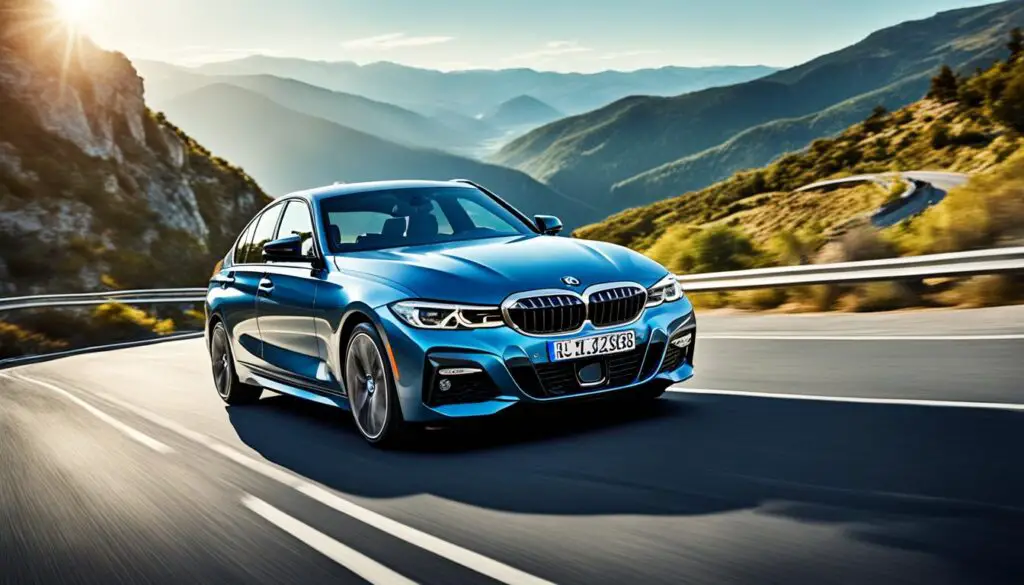
Pros and Cons of BMW 4 Series
When considering buying a BMW, it’s important to evaluate the pros and cons of each model series. In this section, we will delve into the strengths and weaknesses of the BMW 4 Series, helping you make an informed decision.
Pros of BMW 4 Series:
- Aesthetically pleasing design: The BMW 4 Series boasts a sleek and sporty exterior, turning heads wherever it goes.
- Powerful performance: Equipped with impressive engines and advanced handling systems, the 4 Series delivers an exhilarating driving experience.
- High-quality interior: Crafted with premium materials and sophisticated finishes, the cabin of the 4 Series exudes luxury and comfort.
- Advanced technology features: From intuitive infotainment systems to cutting-edge safety technologies, the 4 Series offers a range of innovative features to enhance convenience and safety.
- Versatile body styles: Whether you prefer a coupe, convertible, or gran coupe, the 4 Series offers a variety of body styles to suit different preferences.
Cons of BMW 4 Series:
- Firm ride quality: Due to its sporty suspension setup, the 4 Series may have a stiffer ride compared to other BMW models, potentially compromising comfort on rough roads.
- Restricted rear seating space: While the front seats of the 4 Series are comfortable and spacious, the rear seats may feel cramped, particularly for taller passengers.
- Reduced cargo capacity: The 4 Series prioritizes style and performance over practicality, resulting in limited cargo space, especially in the convertible variant.
- Higher starting price: Compared to entry-level BMW models, the 4 Series tends to have a higher base price, making it less accessible for budget-conscious buyers.
- Expensive maintenance and repairs: Owning a BMW comes with higher maintenance and repair costs, including expensive parts and specialized servicing.
Overall, the BMW 4 Series offers an enticing combination of style, performance, and luxury. However, it’s crucial to consider both the advantages and disadvantages before making a final decision.
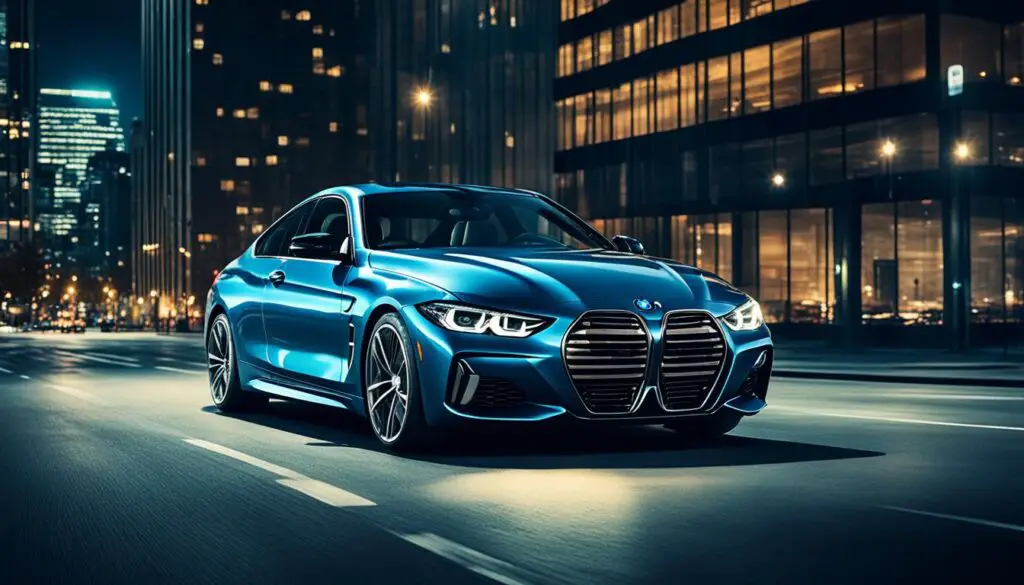
Pros and Cons of BMW 5 Series
The BMW 5 Series combines luxury, performance, and advanced technology, making it a popular choice among car enthusiasts. To help you make an informed decision on whether the BMW 5 Series is the right fit for you, I’ve compiled a list of its pros and cons.
Pros of BMW 5 Series
- Powerful Engine Options: The BMW 5 Series offers a range of engine options, including turbocharged four-cylinder and six-cylinder engines, delivering impressive performance and acceleration.
- Luxurious Interior: Step inside the BMW 5 Series, and you’ll be greeted with high-quality materials, comfortable seating, and a modern, elegant design. The spacious cabin provides ample legroom and headroom for both the driver and passengers.
- Advanced Technology: The BMW 5 Series is equipped with cutting-edge technology features, such as the iDrive infotainment system with a user-friendly interface, a responsive touchscreen, and smartphone integration.
- Safety Features: BMW prioritizes safety, and the 5 Series comes equipped with a wide range of safety features, including adaptive cruise control, lane departure warning, blind-spot monitoring, and automatic emergency braking.
- Smooth and Comfortable Ride: The BMW 5 Series delivers a refined and comfortable ride, thanks to its well-tuned suspension system, precise steering, and excellent noise insulation.
Cons of BMW 5 Series
- Expensive Price Tag: The BMW 5 Series is known for its luxury and performance, but it comes with a higher price tag compared to its competitors in the midsize luxury sedan segment.
- Complicated Infotainment System: While the iDrive infotainment system in the BMW 5 Series offers advanced features, some users may find it complex and overwhelming to navigate.
- Reliability Concerns: While BMW has made significant improvements in reliability over the years, some owners have reported issues with the 5 Series, which can lead to higher maintenance and repair costs.
- Limited Cargo Space: The BMW 5 Series prioritizes passenger comfort, resulting in a slightly smaller trunk compared to some of its rivals. If you frequently need to carry large amounts of cargo, this could be a downside.
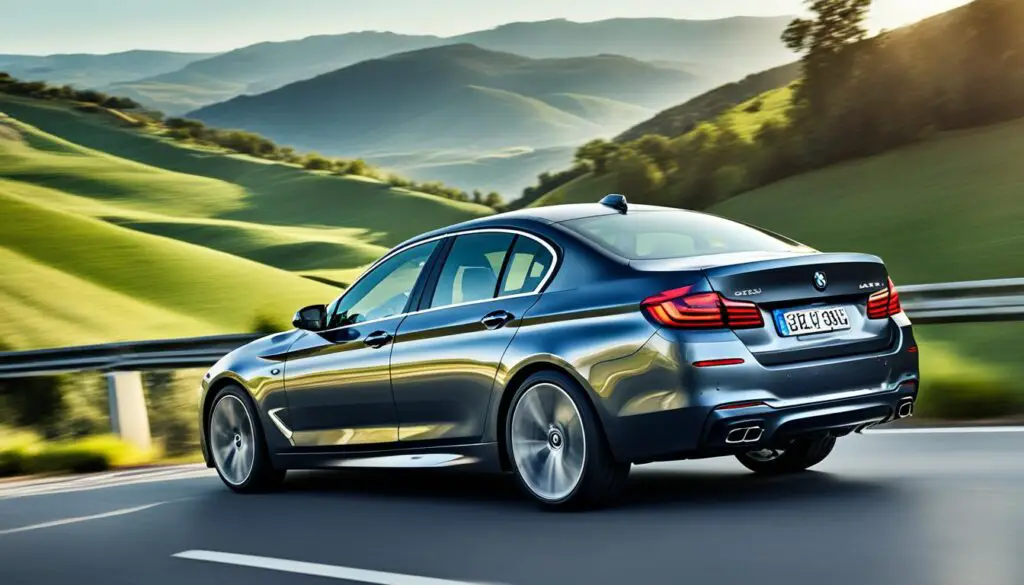
| Pros | Cons |
|---|---|
| Powerful engine options | Expensive price tag |
| Luxurious interior | Complicated infotainment system |
| Advanced technology | Reliability concerns |
| Safety features | Limited cargo space |
| Smooth and comfortable ride |
Pros and Cons of BMW 7 Series
The BMW 7 Series is the epitome of luxury and performance, encompassing cutting-edge technology and top-notch craftsmanship. However, like any other vehicle, it has its pros and cons. Let’s take a closer look at what makes the BMW 7 Series a standout choice, as well as its potential drawbacks.
Pros:
- Unparalleled Luxury: The BMW 7 Series offers an opulent and refined interior, with premium materials and exquisite attention to detail. From the plush leather seats to the advanced comfort features, such as massage functionalities and customizable ambient lighting, every aspect of the cabin exudes luxury.
- Powerful Performance: Equipped with potent engines, the BMW 7 Series delivers impressive power and acceleration. Whether you choose the V8 or the hybrid option, you can expect a smooth and exhilarating ride, complemented by responsive handling and precise steering.
- Innovative Technology: BMW is known for its cutting-edge technology, and the 7 Series is no exception. From the intuitive infotainment system and digital instrument cluster to the advanced driver-assistance features, such as adaptive cruise control and lane-keeping assist, the 7 Series is packed with state-of-the-art technology.
- Spacious and Comfortable: With its long wheelbase and generous interior space, the BMW 7 Series provides ample room for both driver and passengers. Whether you’re chauffeuring clients or traveling with family and friends, everyone can enjoy a comfortable and relaxing journey.
Cons:
- Expensive Maintenance: As a luxury vehicle, the BMW 7 Series can come with higher maintenance costs compared to non-luxury cars. From routine servicing to potential repairs, owners should be prepared for higher expenses when it comes to maintaining their 7 Series.
- Price: The BMW 7 Series is a premium vehicle, and with that comes a higher price tag. While it offers exceptional features and performance, the initial cost of purchasing a 7 Series might be out of reach for some buyers.
- Complex Technology: While the advanced technology in the BMW 7 Series is a major selling point, it can also be overwhelming for some users. The extensive features and settings may require a learning curve to fully harness their capabilities.
- Reduced Fuel Efficiency: Given the powerful engines and performance-oriented nature of the 7 Series, it tends to have lower fuel efficiency compared to smaller, more economical vehicles. This could result in increased fuel costs, especially for those with long commutes or frequent road trips.
Despite these potential drawbacks, the BMW 7 Series remains an enticing choice for luxury car enthusiasts who value exceptional craftsmanship, superb performance, and cutting-edge technology. It’s important to evaluate your personal preferences and consider your budget before making a decision.
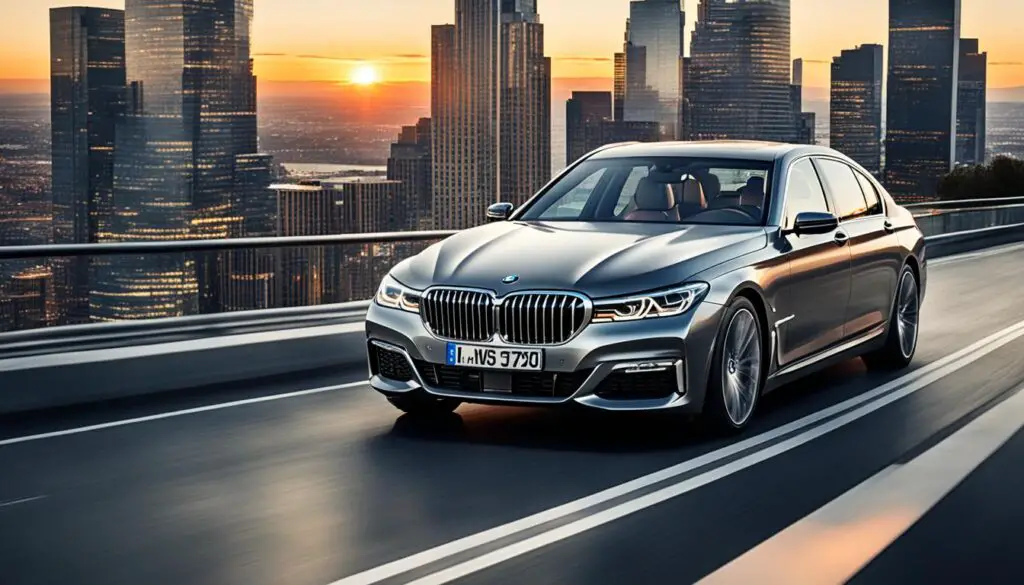
Conclusion: Is Buying a BMW Right for You?
After exploring the pros and cons of various BMW series models, it’s time to determine whether buying a BMW is the right choice for you.
BMW is renowned for its luxurious design, advanced technology, and powerful performance. As a reputable brand with a rich history, a BMW can enhance your driving experience and elevate your status. However, it’s essential to consider your individual needs and preferences before making a decision.
If you prioritize style, comfort, and cutting-edge features, a BMW can certainly meet those expectations. Its exceptional craftsmanship, attention to detail, and sleek aesthetics make it a desirable choice for those seeking a distinctive and sophisticated ride. Additionally, the range of BMW series models caters to different lifestyles, offering various sizes, shapes, and functionalities to suit diverse preferences.
On the other hand, it’s important to be mindful of potential drawbacks. BMWs are often associated with a higher price tag, both in terms of the initial purchase and maintenance costs. Additionally, while BMWs generally provide a smooth and dynamic driving experience, some drivers may find other brands to be more engaging or offer better fuel efficiency.
Ultimately, the decision to buy a BMW depends on your personal priorities, budget, and driving preferences. If you value luxury, innovation, and owning a prestigious brand, a BMW can be an excellent investment. However, conducting thorough research, considering alternatives, and taking test drives are crucial steps to ensure that a BMW aligns with your expectations and lifestyle.

